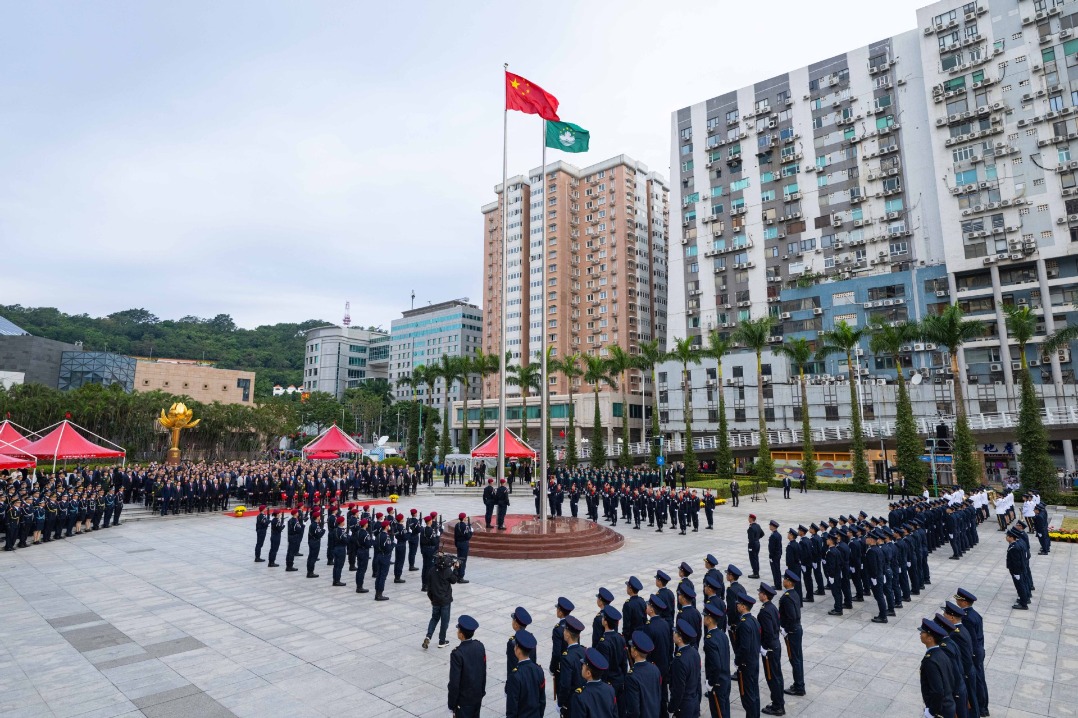Institutional reform set to advance rural vitalization


The Ministry of Agriculture and Rural Affairs has taken on more duties in the latest State Council institutional reform, including overseeing strategic agricultural research and earmarking funds to finance the country's rural vitalization drive.
The changes have worked to centralize administration of sannong — an official term referring to agriculture, rural areas and farmers — under one agency. The reform is intended to enable better execution of the country's rural vitalization plan and to curb bureaucracy, said Lei Ming, deputy director of Peking University's Institute on Poverty Research.
Compared with the anti-poverty drive, "rural vitalization is a more systematic undertaking, which covers a wide range of areas such as fostering rural industries, optimizing governance and formulating policies", he said. "Putting all such work under one governing body helps form a stronger resultant force."
The reform was outlined in a draft plan for the biggest change in five years of departments of the State Council, China's Cabinet. The draft was unveiled at the second plenary meeting of the first session of the 14th National People's Congress on March 7 and approved by the top legislature on Friday.
Under the plan, the ministry will take over the functions of the National Rural Revitalization Administration. In 2021, the former State Council Leading Group Office of Poverty Alleviation and Development, the country's poverty-curbing task force, was renamed the NRRA.
Its tasks included offering assistance to vulnerable rural residents who had just escaped severe poverty, organizing wealthier regions to help less well-off places and allocating funds for rural vitalization.
Wang Sangui, director of the China Anti-Poverty Research Institute at Renmin University of China, said the merger is in line with the State Council institutional reform in 2018. That year, the former Ministry of Agriculture took over functions related to farmers and rural development, which previously belonged to the National Reform and Development Commission and the Ministry of Finance.
"The former Ministry of Agriculture was transformed from a regulator of the farming industry to one that oversees all work relating to agriculture, rural villages and farmers," Wang said. "The reshuffle this year has further expanded the ministry's functions and laid a foundation for comprehensively advancing the rural vitalization work."
The overhaul comes after China eliminated absolute poverty in recent years and set out on a new mission to fully vitalize the vast, thinly resourced countryside.
Meeting strategy's needs
Yu Aizhi, a professor at the Central University of Finance and Economics and director of the university's Center for Rural Economic Development, said the merger was partly prompted by the need to invigorate rural industries, a central plank of the rural vitalization strategy.
"The vitalization of industry in the countryside requires coordination and collaboration from multiple parties, such as between authorities and the nongovernment forces," she said.
"The ministry has an advantage in carrying out such work because it has formed a mature work mechanism and amassed vast amounts of experience in mobilizing entities such as rural cooperatives and farming conglomerates in the past."
Wang, from Renmin University of China, said that merging the NRRA with the Ministry of Agriculture and Rural Affairs will help streamline government bodies. "When two agencies become one, the number of subdivisions will very likely decrease," he said.
Under the reshuffle, functions of the Ministry of Science and Technology, including "organizing and drawing up plans and policies for promoting agricultural and rural development through science and technology" and "guiding scientific and technological progress in rural areas", will be shifted to the Ministry of Agriculture and Rural Affairs.
Wang said that taking away agriculture-related research duties from the Ministry of Science and Technology will also help the ministry to focus on "major, cutting-edge" basic technologies.
Tang Lixia, vice-dean of China Agricultural University's College of International Development and Global Agriculture, said the changes reflect the trend of China consolidating its food security through greater technological input. The nation used to rely on expanding growing areas and using more fertilizers and pesticides to boost yield, but this approach has reached a ceiling, she said.
"By putting all farming-related research resources under the agriculture ministry, the science community can better interact with the farming industry, which provides a boon to agriculture production," she said.
lilei@chinadaily.com.cn




































